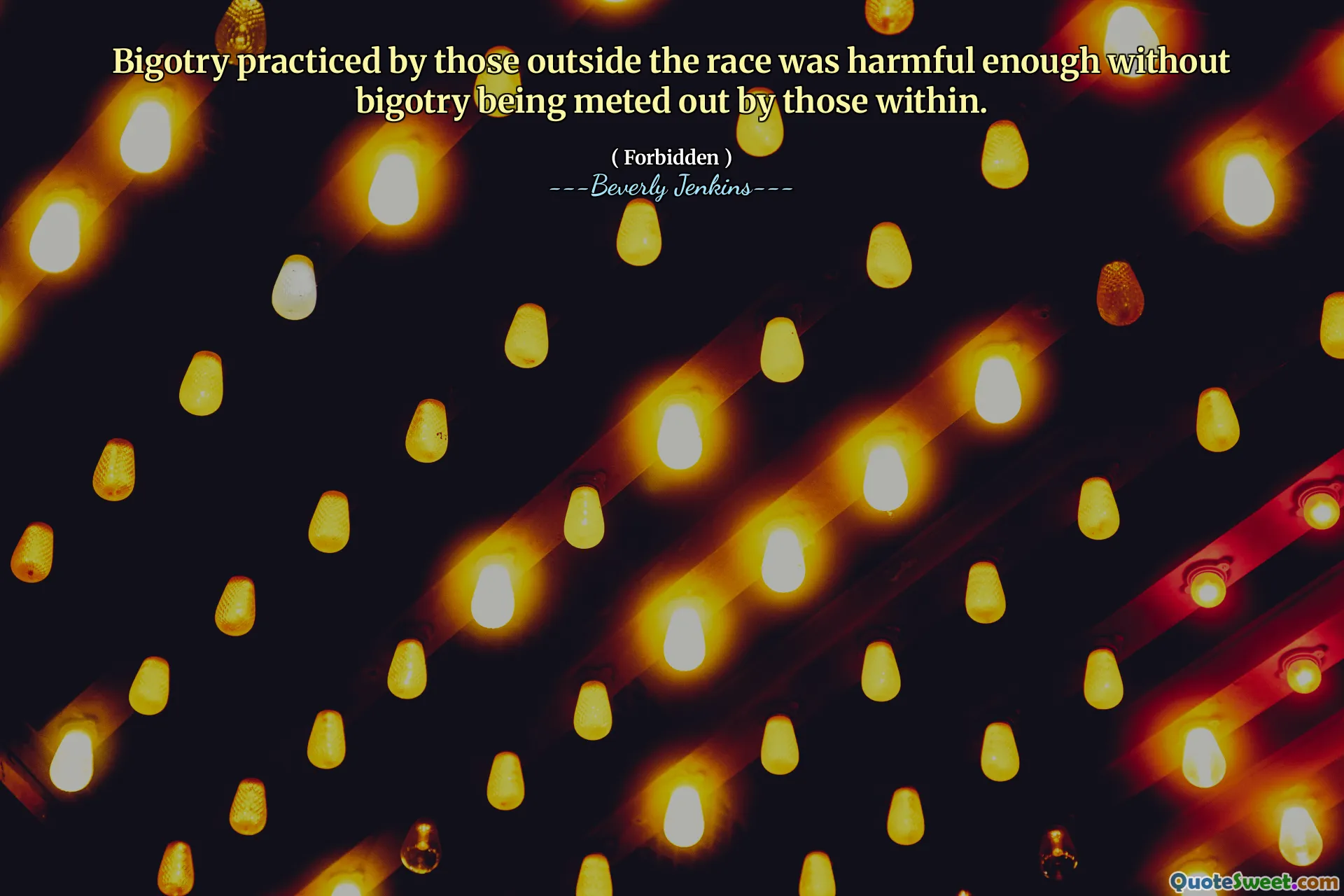
Bigotry practiced by those outside the race was harmful enough without bigotry being meted out by those within.
This quote highlights a profound and often overlooked aspect of prejudice: the internalization and internal conflict within marginalized groups. It underscores that bigotry is not solely wielded from outside forces; it can also emerge from members within a community, leading to internal divisions and self-hatred. This phenomenon can be particularly insidious, as it fosters a sense of betrayal and complicity, making the conflict more complex and painful than external discrimination alone. When individuals within a group harbor biases against their own, it can weaken collective strength and resilience, perpetuating cycles of disenfranchisement and suffering. Recognizing the destructive power of internal bigotry is essential for holistic social progress because overcoming external oppression requires addressing both systemic injustices and internalized prejudices. This quote invites us to reflect on how societal narratives shape individual beliefs and how internal dynamics might hinder the path toward equality and unity.
It serves as a reminder that fighting prejudice is not just about combating external authorities or societal norms but also involves confronting and dismantling the biases we carry within ourselves and our communities. Self-awareness and open dialogue are crucial in this process. Facilitating understanding and empathy can help individuals recognize their own biases and work towards meaningful change. By understanding that internal bigotry can be just as harmful as external bigotry, we can foster a more genuine and comprehensive approach to social justice, emphasizing kindness, acceptance, and internal reflection alongside activism.
Overall, this quote encourages personal and collective introspection, emphasizing that combating prejudice requires courage to confront both external and internal forms of discrimination. It underscores the importance of solidarity within marginalized communities and the need to challenge not just societal structures but also our own prejudiced beliefs.
Written in the context of Beverly Jenkins's '(Forbidden)', it resonates with themes of internal struggle, societal bias, and the importance of unity within oppressed groups, reminding us that true progress begins from within.






